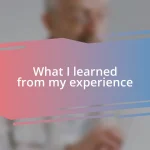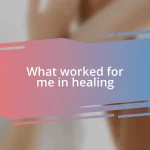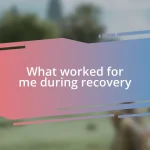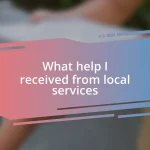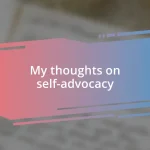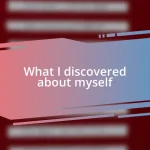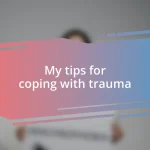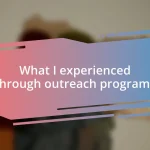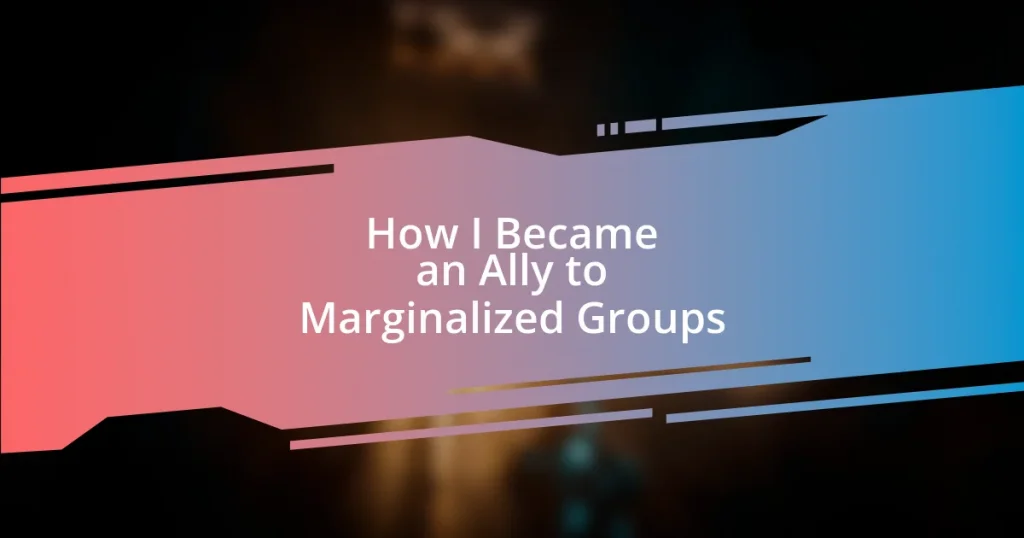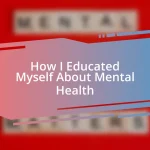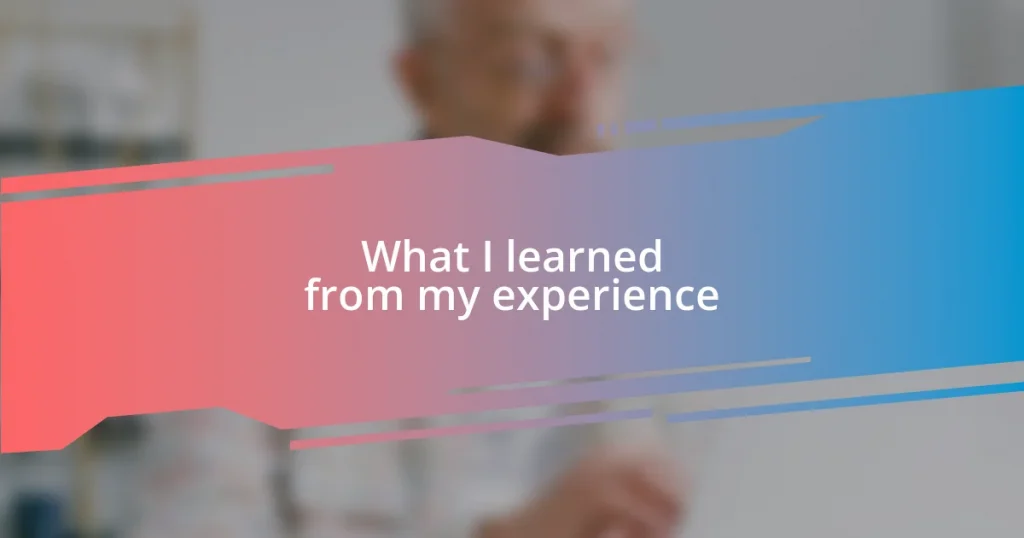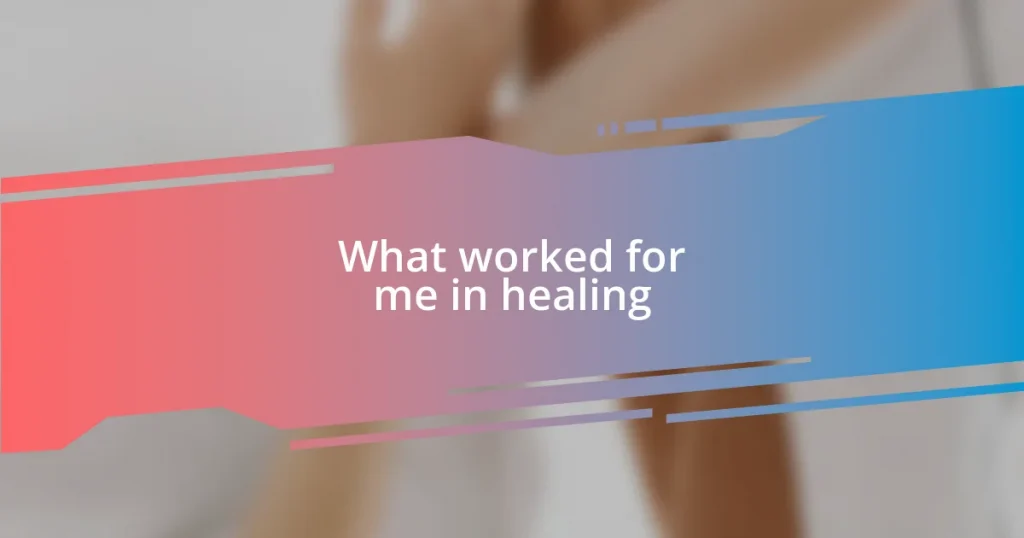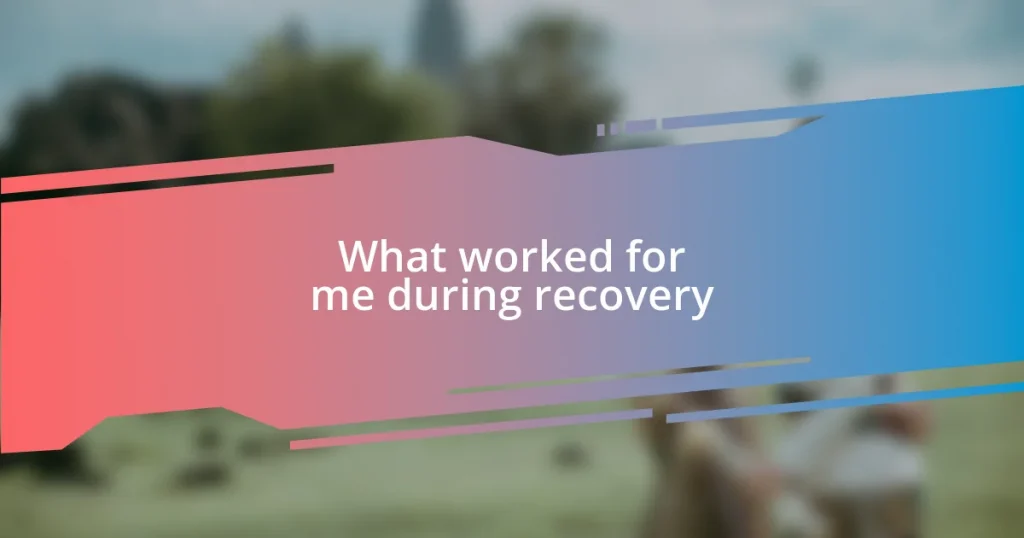Key takeaways:
- Active listening and empathy are essential for understanding marginalized groups and fostering genuine connections.
- Recognizing and using personal privilege effectively can contribute to advocacy and support for marginalized communities.
- Engaging in action through community involvement and sharing resources amplifies voices and drives meaningful change.
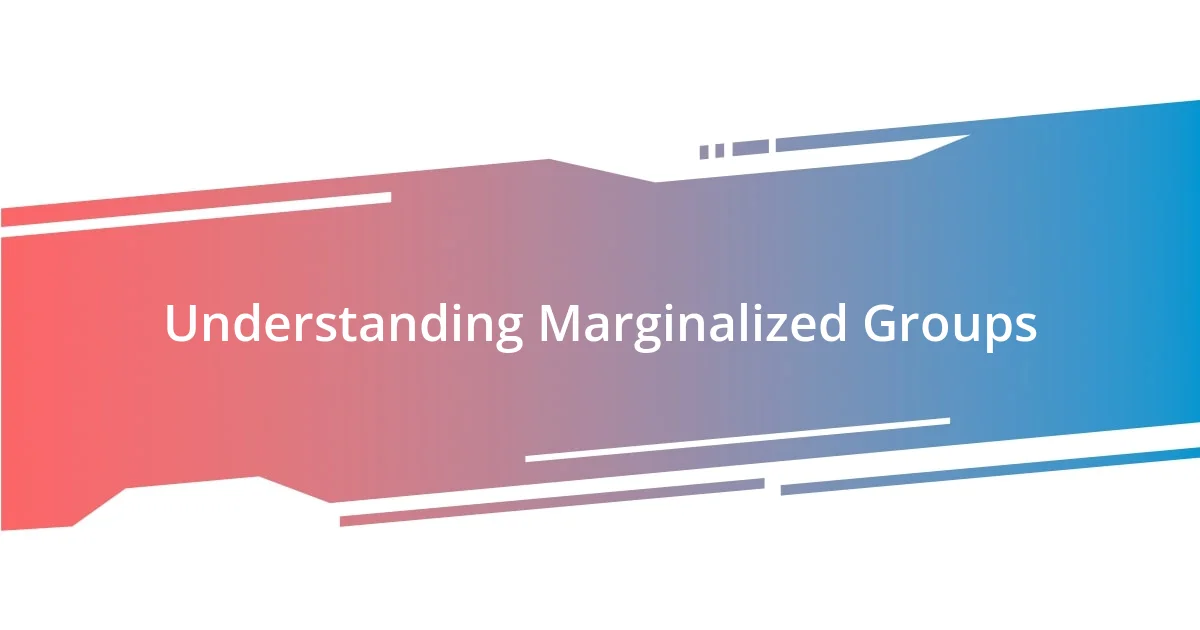
Understanding Marginalized Groups
Understanding marginalized groups requires a deep dive into their unique experiences and struggles. I remember a conversation over coffee with a friend who identified as queer. They shared how society often overlooks the challenges they face, from discrimination to simply feeling invisible. It made me wonder, have I been truly aware of the layers of injustice around me?
Marginalization isn’t just a label; it shapes lives in profound ways. I think back to a time when I attended a community event focused on racial equality. Listening to stories from people of color left me feeling a mix of sorrow and determination. Their narratives opened my eyes to the systemic barriers they confront every day—barriers that I had previously taken for granted.
To understand marginalized groups, we must listen actively and empathize with their struggles. I often ask myself, how can I be a better ally? It’s not just about acknowledging their existence but also amplifying their voices. Engaging in dialogue, and even being uncomfortable, can foster deeper connections and understanding.
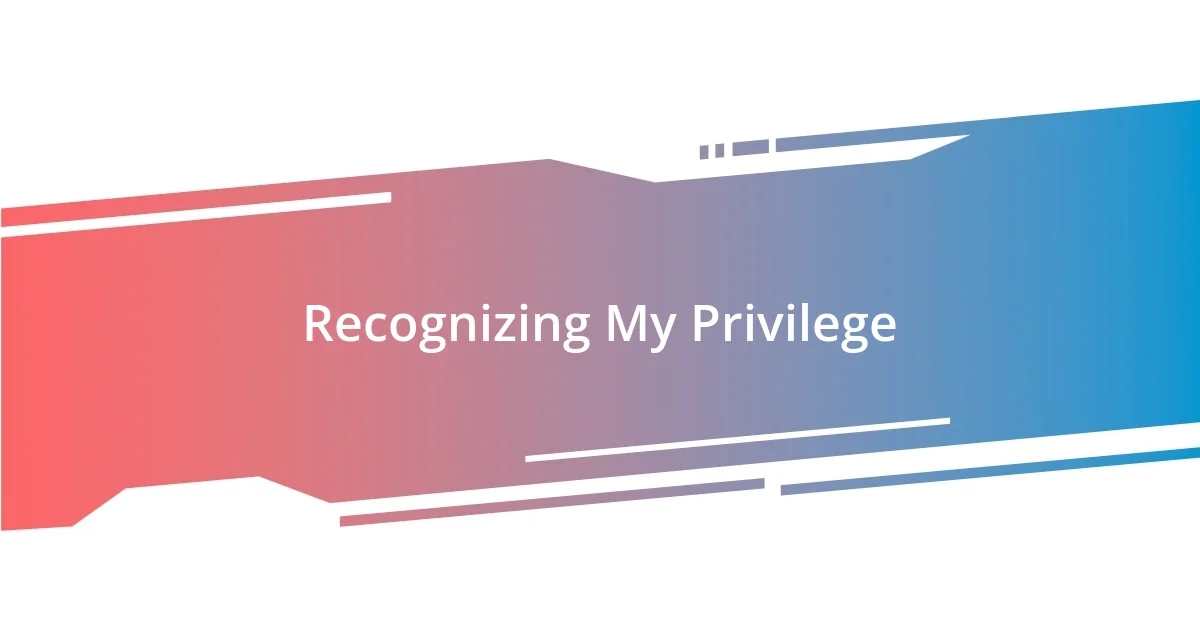
Recognizing My Privilege
Recognizing my privilege wasn’t an easy journey. I’ll never forget the moment I realized that navigating life as a white, cisgender individual meant I had advantages that others didn’t. Watching my friend, who is a person of color, struggle to find representation in their workplace made me uncomfortable. It opened my eyes to the disparities that exist. How often do we take our privilege for granted without even knowing its impact?
Reflecting on policies and systems, I began to understand how privilege shapes opportunities. Participating in a workshop on social justice, I vividly recall hearing about the challenges faced by disabled individuals. It struck me how my ability to walk into any building without barriers or obstacles was something they’d never experience. The discussion left me feeling compelled to advocate for changes that create a more equitable environment for everyone.
I’ve come to terms with the fact that recognizing privilege is only the first step; the real challenge lies in using it for the betterment of marginalized communities. One instance that stands out is when I chose to stand up and speak out during a heated discussion about gender equity at work. I realized that my voice carried weight and could help uplift those who often go unheard. In these moments of awareness, I found purpose in my privilege—turning insights into action is key to being a true ally.
| Type of Privilege | Description |
|---|---|
| Racial Privilege | Access to opportunities and freedom from discrimination based on race. |
| Gender Privilege | Experiencing benefits of societal norms that favor one gender over another. |
| Socioeconomic Privilege | Access to resources, education, and networks that promote upward mobility. |
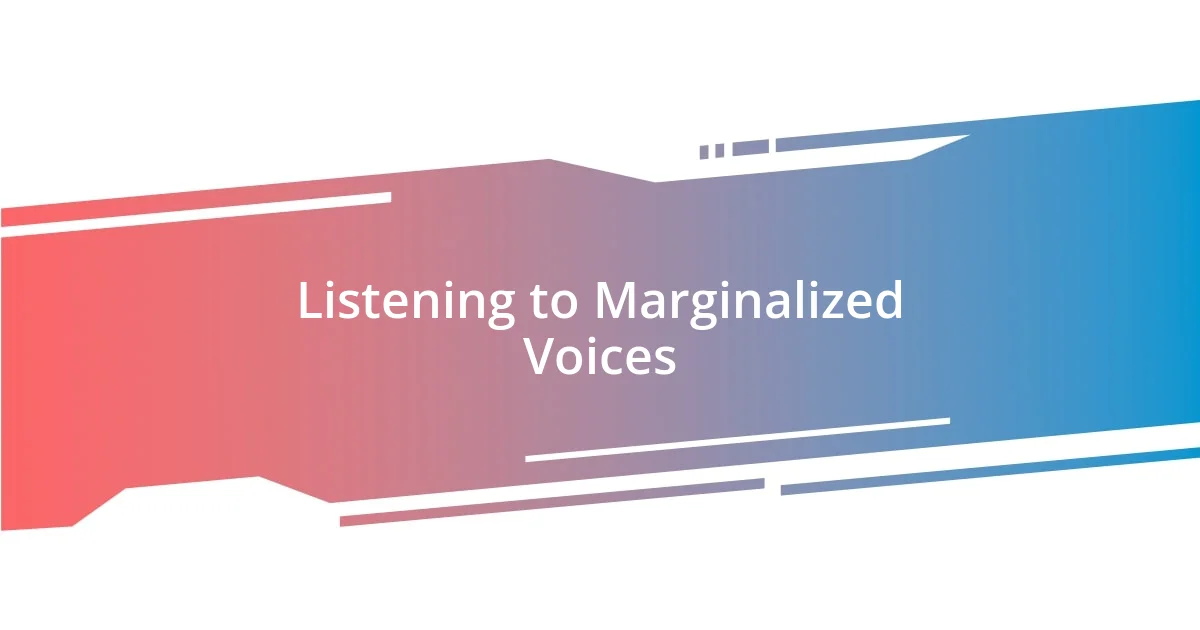
Listening to Marginalized Voices
Listening to marginalized voices has been an eye-opening experience for me. I recall attending an open mic night where individuals from various backgrounds shared their stories. One performer, a woman who identified as non-binary, spoke about her journey to find acceptance. I felt her pain and resilience; it stirred emotions within me that I didn’t realize were buried. It reminded me of the importance of placing value on these voices—they contain wisdom that can challenge our perceptions and drive change.
When we truly listen, we open doors to understanding. Here are some key takeaways I’ve learned about listening to marginalized voices:
- Empathy is Essential: Being present during conversations about painful experiences fosters genuine connections.
- Challenge Assumptions: I’ve found that questioning my biases often leads to deeper insights.
- Amplify Stories: Share what you’ve heard with others; it helps those voices reach a broader audience.
- Stay Humble and Open: Recognizing that I don’t have all the answers keeps me receptive to new ideas and perspectives.
Embracing these principles has made me a better ally.
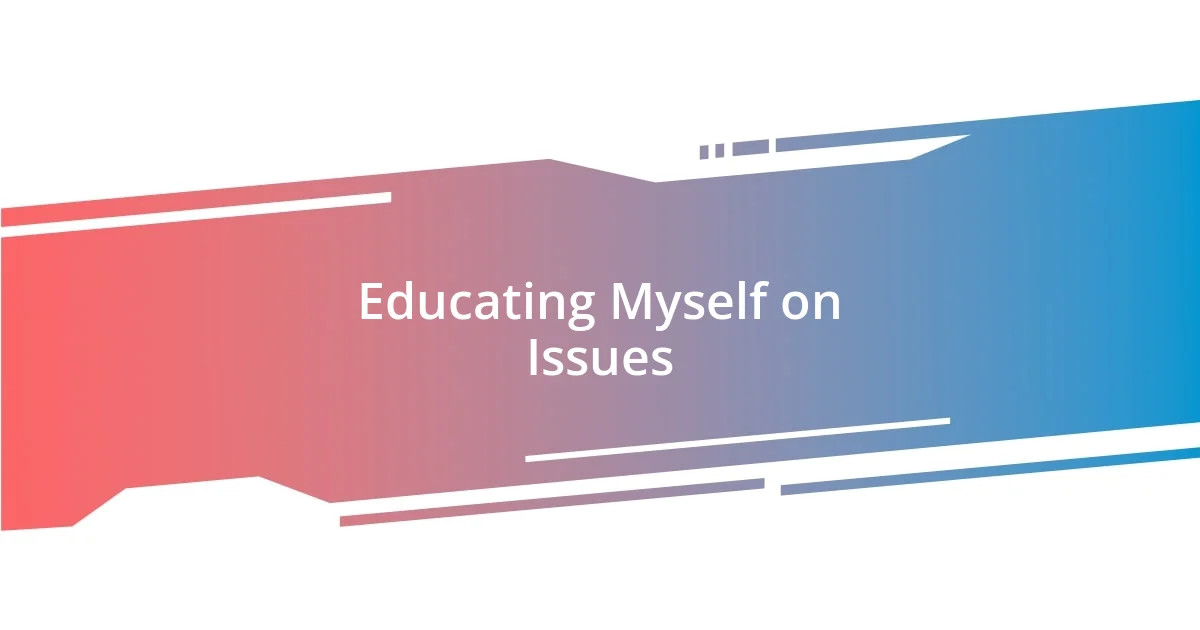
Educating Myself on Issues
I realized early on that educating myself about marginalized groups was vital for effective allyship. I remember picking up a book on feminist theory. As I turned its pages, I felt a mix of frustration and enlightenment. It was a wake-up call to the systemic inequalities that persist. How could I have been so unaware of these complexities? That curiosity propelled me into deeper research, motivating me to explore topics like racial justice and LGBTQ+ rights.
Delving into documentaries and attending lectures gave me a broader perspective on societal issues. One particular film left an indelible mark on me—it showcased the challenges faced by transgender individuals. It wasn’t just a documentary for me; it was a revealing of humanity. Watching those stories unfold made me question my own biases. I found myself reflecting on my past actions and the words I’d casually tossed around. Each moment served as a stepping stone toward becoming more informed and compassionate.
Additionally, I started engaging with online communities and forums focused on social justice. The conversations I participated in were enlightening, filled with diverse viewpoints and lived experiences. I often wondered how my own experiences influenced my understanding of these issues. What I discovered was that knowledge alone isn’t enough; it needs to be combined with empathy and action. This journey of educating myself opened my eyes to the subtleties of advocacy and allyship I never expected to encounter.
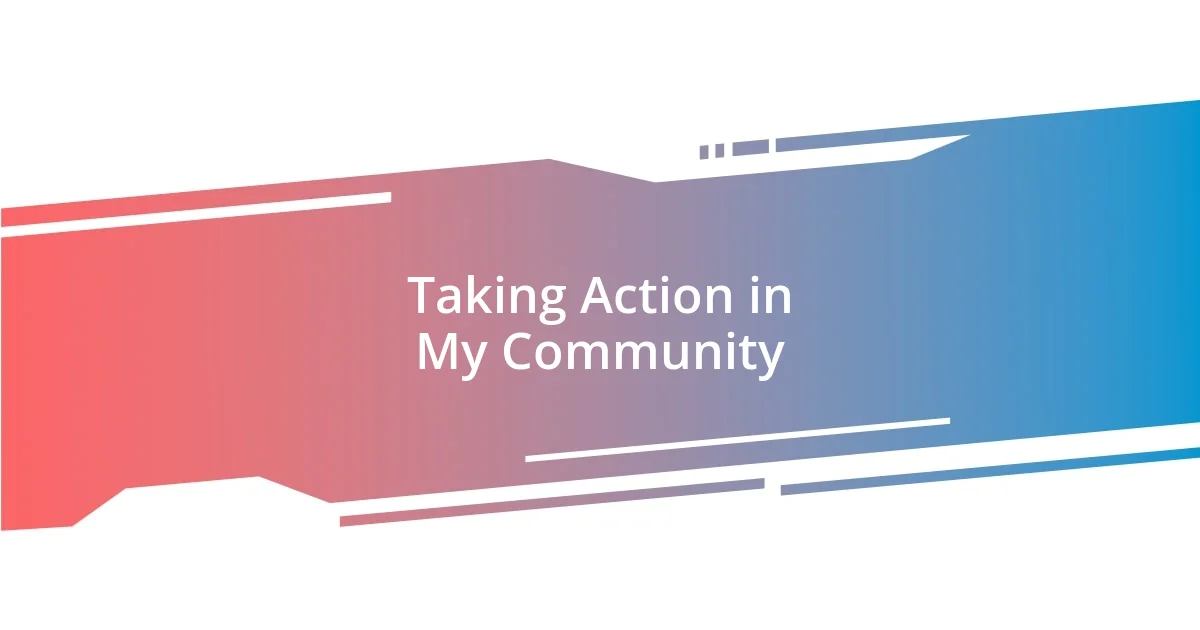
Taking Action in My Community
Taking action in my community has been a rewarding yet challenging journey. I decided to volunteer for a local organization that supports refugees. Seeing their resilience firsthand was humbling. Each story, filled with hope and heartbreak, reminded me of the privilege in my own life and sparked a desire to serve. I still remember the day we helped a family set up their new home. The smiles exchanged were worth all the effort.
One Saturday, I organized a neighborhood clean-up that highlighted environmental racism. I invited community members to discuss how pollution affects marginalized areas more severely. Gathering different perspectives, we shared our experiences over trash bags and recycling bins. Who knew that such a simple act could lead to deeper conversations about social justice? Those moments were enlightening, driving home the point that change starts locally.
I also joined a book club focused on anti-racist literature, which sparked dynamic discussions among participants. The more we read, the more I understood the nuances of systemic inequality. It left me pondering: what if everyone engaged in such dialogues? The realization struck me—collaboration is crucial. Alone, my impact felt limited, but together, I could help amplify voices that deserved to be heard. My community became a platform for not just action but also for solidarity and growth.
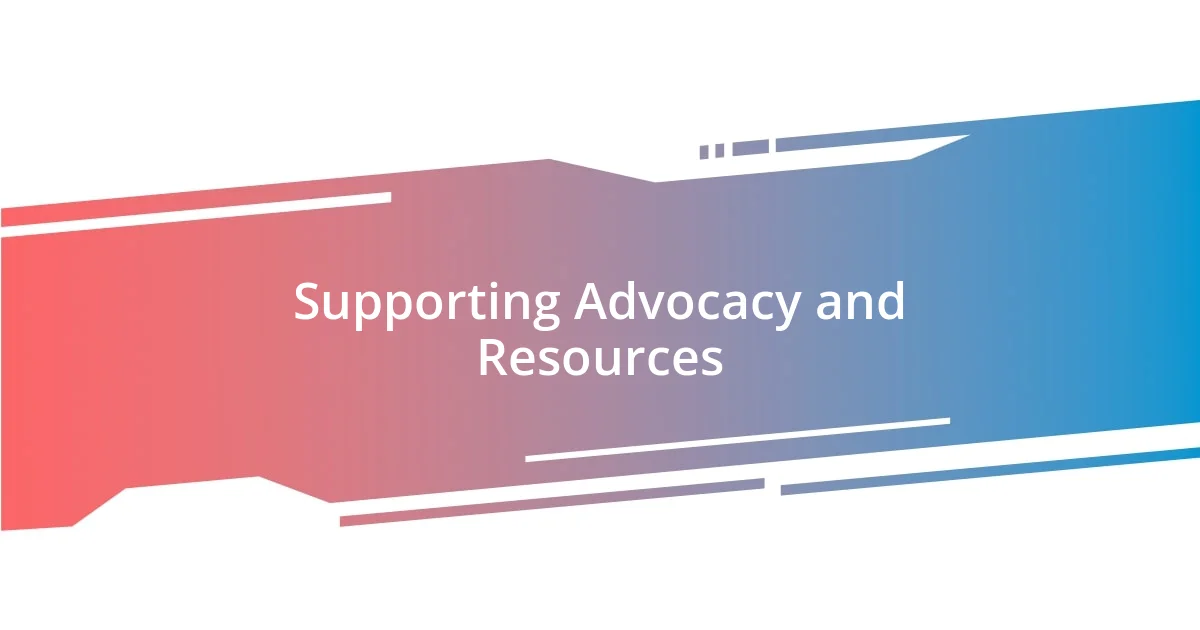
Supporting Advocacy and Resources
Supporting advocacy has been a crucial step in my journey as an ally. I remember the first time I attended a rally with friends. The energy was palpable, and I felt a mix of excitement and nervousness. What struck me most was the sheer number of people committed to fighting for justice. I realized that showing up for these events wasn’t just about being present; it was about joining a chorus of voices that demanded change. Each chant felt like a heartbeat, reminding me that advocacy thrives on collective effort.
In addition to participating in events, I’ve found deep value in sharing resources with my network. One time, I created a curated list of organizations supporting marginalized communities and shared it through my social media. It felt like a small action, yet the engagement it sparked was meaningful. People reached out to say they didn’t know about these resources, which made me ponder: how often do we miss connecting others with vital information? By being proactive in sharing, I understood that advocacy is not always about grand gestures—it can be as simple as elevating resources that empower those in need.
Another powerful aspect of supporting advocacy is funding. I recall my decision to donate monthly to a local LGBTQ+ youth center. Each contribution felt significant, not just financially, but emotionally. It reminded me that my privilege can be a source of support for those less fortunate. Have you ever thought about how small contributions can create ripples of change? I certainly have, and it inspires me to continue engaging in the ongoing dialogue about resources that can uplift marginalized groups.
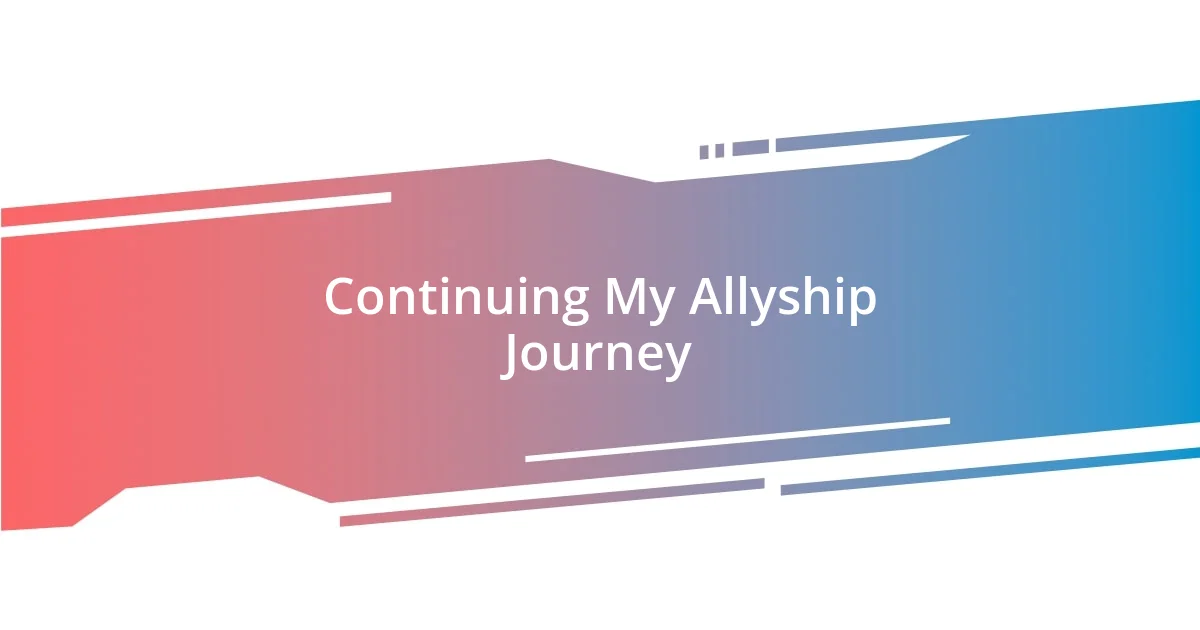
Continuing My Allyship Journey
Continuing my allyship journey has been a process of self-reflection and learning. Recently, I attended a workshop on microaggressions, and I found myself challenged in ways I didn’t expect. I sat there, uncomfortable yet enlightened, realizing how often I’ve unintentionally contributed to a culture of insensitivity. It made me ask: how can I transform that discomfort into meaningful change in my daily interactions?
I also committed to consistently amplifying marginalized voices through my social media platforms. One of my favorite instances was when I highlighted artists from underrepresented communities, sharing their stories and creative journeys. The response was incredible, and it dawned on me—by sharing these narratives, I not only uplift others but also enrich my own life with diverse perspectives. Isn’t it fascinating how much we can learn from those who see the world differently?
As I navigate this path, I’ve developed a habit of listening before speaking. This was particularly evident during a community meeting last month where we discussed our neighborhood’s challenges. Instead of jumping in with solutions, I took a step back and let others share their experiences. It was eye-opening to hear their frustrations and hopes. I realized that sometimes, allyship isn’t about having the loudest voice; it’s about providing a space for others to be heard. How has listening shaped your understanding of the people around you? I believe it can transform our connections and broaden our understanding of allyship.
